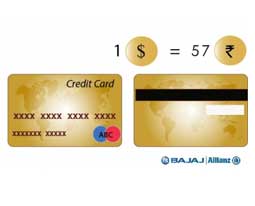Buy Policy: 1800-209-0144| Service: 1800-209-5858
 Service Chat: +91 75072 45858
Service Chat: +91 75072 45858

Overseas Money Exchange: Tricks and Tip – Part 1
Money is a basic travel necessity. Having money troubles when abroad is a traveler’s worst nightmare, seeing as there’s no shortage of risks – theft, misplacement, overspending, unforeseen expenses, etc. While travel insurance can resolve many of these worries, the greatest, hidden danger of dealing in currency abroad is – exchange rates.
Most travelers assume that foreign exchange is as simple as presenting their money to a money exchange service, and getting back the local currency of the place they’re visiting. But as it turns out, it isn’t that simple, and unless you’re careful, you could lose out on a lot of money in the exchange process. Although there are a variety of ways in which you can carry money abroad – cash, ATM cards, credit cards and traveler’s cheques – each of them carries its own pitfalls.
Let’s take a look at what can go wrong when you’re traveling abroad with money in hand.
TRAPS
Cash: While this is the easiest way to carry money, it’s also the riskiest. You do need to carry some cash to cover immediate and small expenses like transport, food and drinks. However, relying only on cash throughout your trip puts you at the mercy of pickpockets and money exchange services, which often charge an extremely high commission and give you a lower rate than the market standard. A cash-only plan also requires you to be on your guard against overspending. After all, what happens if you run out of money?
ATM and Credit cards: An international credit or ATM card is the least risky form of conducting your transactions abroad. Carrying a card ensures that you do not have to carry too much cash, and whenever you run out of money, you can always withdraw more from an ATM or simply charge your expenses to your account. Sounds fuss-free? It is, as long as you ignore the massive currency conversion and service charges you keep racking up at your bank.
Traveler’s cheques: This tried-and-true method of carrying money offers a great advantage over theft and misplacement. As long as you remember the cheque numbers, or have photocopies, you can get them encashed even if the cheques themselves have been lost of stolen. So what’s the problem, you ask? The flat fee for encashment – which can make small transactions burdensome, and your overall transaction bill very expensive.
In our next installment, we will tell you how to avoid these traps – so keep a sharp eye on this space!
Learn more about Bajaj Allianz Travel Insurance.
Visit our website to learn how to safeguard your baggage against damage, loss and theft.

